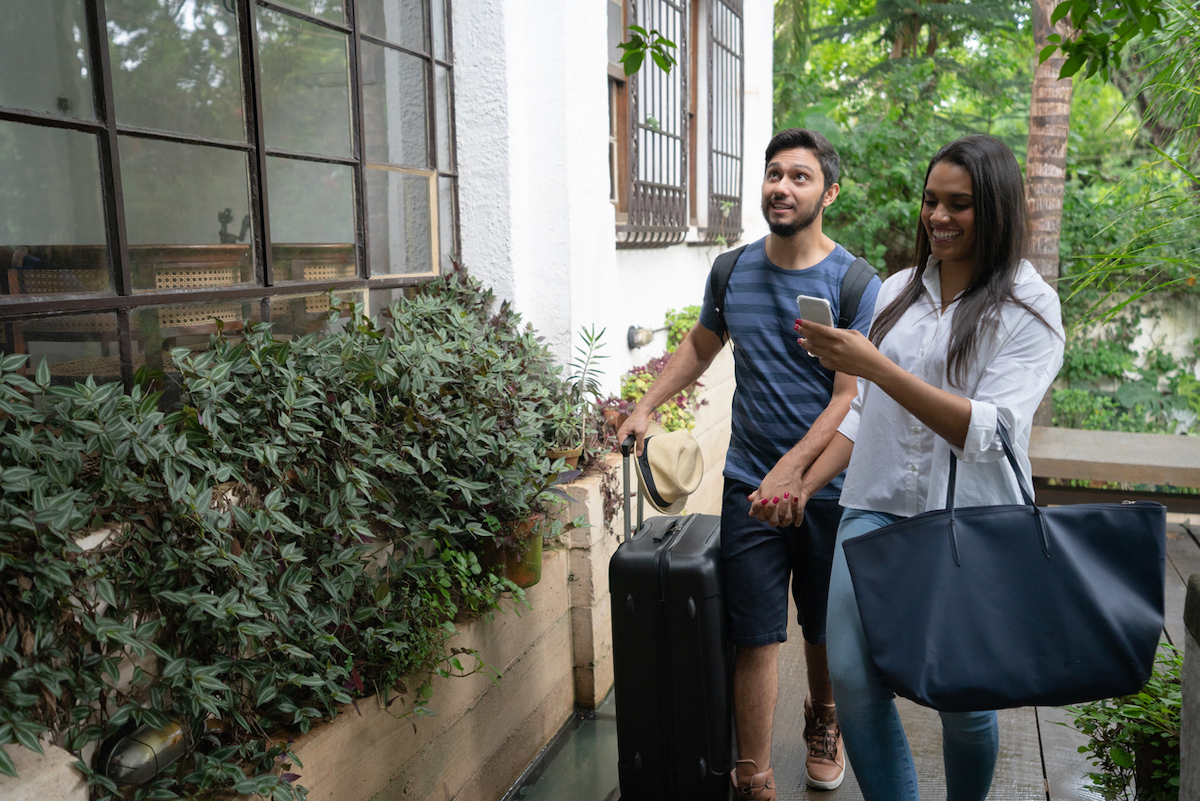According to a report by Bloomberg, Airbnb saw more nights booked for U.S. listings between May 17 and June 3 of this year compared to the same time period in 2019. The company also reports seeing a similar boost in domestic travel in countries like Germany, Portugal, South Korea, and New Zealand. “People, after having been stuck in their homes for a few months, do want to get out of their houses … But they don’t necessarily want to get on an airplane and are not yet comfortable leaving their countries,” Brian Chesky, Airbnb’s chief executive officer, told Bloomberg. Airbnb took a huge hit at the beginning of the coronavirus, laying off 25 percent of its staff at the beginning of May. But now, it seems like people are canceling their long-planned international trips and instead doing short road trips not too far from their comfort zones, giving the company a boost. The percentage of people booking on Airbnb within 200 miles of their home has risen from one third in February to more than 50 percent in May. Currently, Airbnb’s top destinations in the U.S. are Big Bear Lake in southern California, the Smoky Mountains along the Tennessee-North Carolina border, and Port Aransas in Texas. Chesky told the Associated Press at the end of May that “13 percent of [their] business pre-COVID was people traveling and staying at Airbnbs 50 miles from them. Now that’s 30 percent.” Of course, some travelers may be wondering if it’s safe to stay at a rental house while the virus still looms large in certain states. In an effort to keep customers healthy, Airbnb launched an enhanced cleaning protocol to help hosts prepare for guests amid COVID-19.ae0fcc31ae342fd3a1346ebb1f342fcb Alongside extensive cleaning, sanitizing, and disinfecting guidelines, hosts partnering with Airbnb’s Frontline Stay program—meaning they’ve allowed their Airbnb to be booked by doctors, nurses, and other frontline responders—must wait 72 hours between reservations to allow for a standard 24-hour waiting period, time to clean and sanitize extensively, and an additional buffer. RELATED: For more up-to-date information, sign up for our daily newsletter. And even if you’re not a frontline worker, you can and should ask any Airbnb host how long it’s been since the home as been occupied. “The more recently someone has entered the home, the higher the risk,” Andrew Janowski, MD, instructor of pediatric infectious diseases at Washington University School of Medicine/St Louis Children’s Hospital, told Today. “This would be the one area I would push really hard if I was considering renting a home from someone.” But ultimately, the risk of catching the virus from a rental house is low. “If you rent a house and, assuming the high-touch areas have been cleaned, the risk of getting the virus from the physical objects in the house is very low,” Thomas A. Russo, MD, chief of the division of infectious diseases at the University at Buffalo, told Today. And if you need some inspiration for a safe trip, check out 6 Easy Getaways You Can Safely Take This Weekend.
